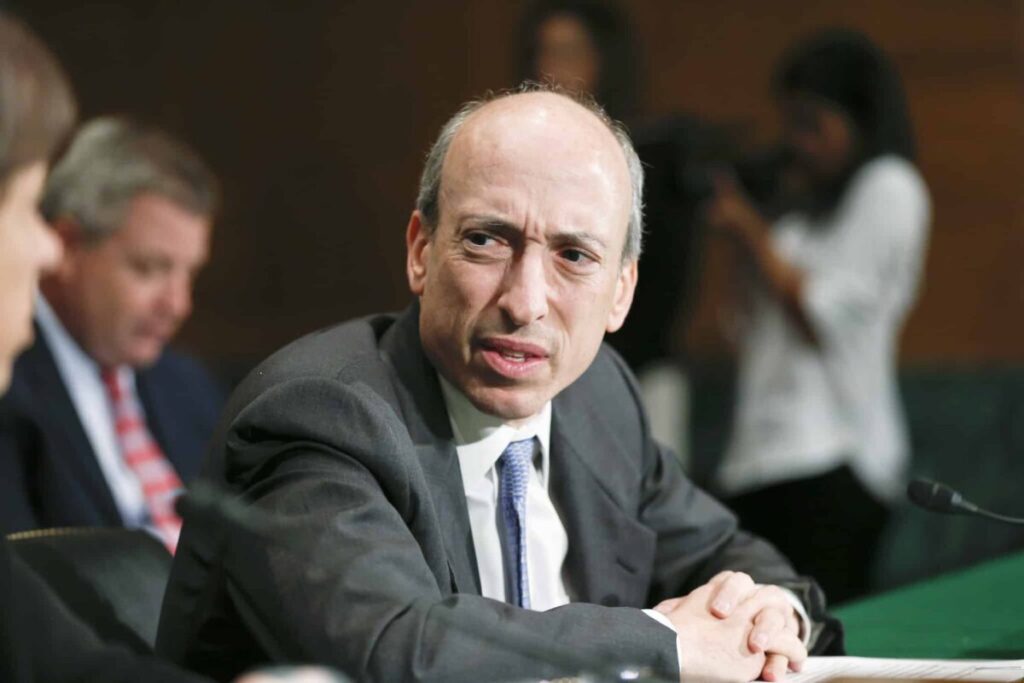US House to Vote on Overriding Biden’s Veto of SAB 121 Next Week

QuickTake:
- President Biden vetoed the resolution to overturn Staff Accounting Bulletin 121 (SAB 121) in May.
- The US House will vote next week on overriding the veto, a constitutional obligation.
- Experts are divided on whether there are enough votes to successfully override the veto.
- SAB 121 requires firms that custody crypto to record customer crypto holdings as liabilities.
Next week, the US House of Representatives is set to vote on whether to override President Joe Biden’s veto of the resolution to overturn Staff Accounting Bulletin 121 (SAB 121). The bulletin, issued by the Securities and Exchange Commission (SEC), has sparked significant controversy, especially within the crypto industry, due to its requirements for how firms that custody digital assets should handle those assets on their balance sheets. This upcoming vote is a critical moment, with both sides of the debate weighing the potential impacts on the industry and the feasibility of reversing the veto.
President Biden vetoed the resolution to overturn SAB 121 in May, citing concerns over financial stability and regulatory clarity. The bulletin mandates that firms holding cryptocurrency on behalf of customers must record these holdings as liabilities on their balance sheets. This accounting treatment has been contentious, with many in the crypto sector arguing that it could deter banks and other financial institutions from offering custodial services for digital assets. The concern is that this requirement could stifle innovation and limit the availability of secure custodial options for crypto investors.
House Majority Leader Steve Scalise has indicated that the resolution to overturn SAB 121 may be considered on Tuesday or Wednesday of next week. The vote is a constitutional obligation, meaning that the House must take it up again despite the initial veto. The earlier vote in May saw the House pass the measure with a 228-182 vote, with significant support from Republicans and 21 Democrats. The Senate followed with a 60-38 vote, which included backing from several prominent Democrats, including Senate Majority Leader Chuck Schumer.
To successfully override President Biden’s veto, a two-thirds majority vote is required in both the House and the Senate. This translates to 290 votes in the House and 67 in the Senate. While the initial votes showed strong bipartisan support, reaching the necessary threshold to override the veto presents a significant challenge.
Alexander Grieve, who handles government affairs at venture capital firm Paradigm, remains cautiously optimistic about the prospects. “Remember when Biden vetoed the SAB 121 rollback? It’s back on the House floor next week — let’s see if the House can rally a ⅔ vote to overturn the veto,” Grieve commented on X. He noted that given the bipartisan nature of the previous vote on FIT21, a crypto market structure bill, there is a possibility of securing the needed votes. FIT21 passed the House with a 279-136 vote, including support from 71 Democrats.
However, not all experts share this optimism. Cody Carbone, vice president of policy for the Chamber of Digital Commerce, believes that achieving the necessary votes will be a steep uphill battle. “I think it’s unlikely to pass given the uphill battle in terms of numbers needed to override the veto,” Carbone stated. He pointed out that the House would need to convince about 60 more members to support the override, a significant increase from the initial 228 who voted in favor. “It’ll be very difficult to change 60 members’ minds in the next week,” Carbone added. Despite his skepticism, Carbone acknowledged the importance of consumer protection and good governance, expressing hope that these principles might sway some votes.
The debate over SAB 121 centers on its implications for the crypto industry and the broader financial system. Proponents of the bulletin argue that it provides necessary regulatory clarity and ensures that firms accurately reflect the risks associated with holding digital assets. They contend that recording customer crypto holdings as liabilities helps protect consumers and maintains the integrity of financial statements.
Opponents, however, believe that SAB 121 imposes undue burdens on firms and could discourage them from offering custodial services for cryptocurrencies. This, they argue, could limit the options available to crypto investors and hinder the growth and adoption of digital assets. By overturning the bulletin, they hope to create a more favorable regulatory environment that encourages innovation and supports the development of the crypto industry.
As the vote approaches, lawmakers on both sides will be making their final arguments and attempting to sway undecided members. The outcome will have significant implications for the future of crypto regulation in the United States. If the veto is overridden, it would mark a significant defeat for the Biden administration’s regulatory stance and could signal a shift in how digital assets are treated by financial regulators.
In conclusion, the US House’s upcoming vote on SAB 121 is a pivotal moment for the crypto industry and financial regulation. With President Biden’s veto on the line, both supporters and opponents of the bulletin are gearing up for a decisive battle. Whether there are enough votes to override the veto remains uncertain, but the stakes are high, and the outcome will shape the regulatory landscape for digital assets in the years to come.



